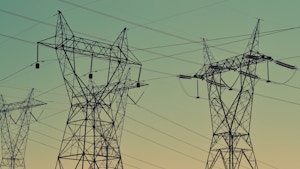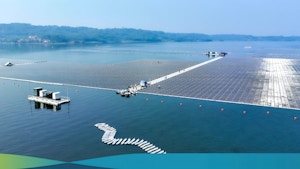Southeast Asia's Clean Energy Transition
All our latest stories. Back to Sea's Clean Energy Transition.

SDG 9. Infrastructure
Asean to prioritise common grid codes, transparent tariffs and dispute resolution mechanism for regional power grid
Southeast Asian energy ministers are scheduled to sign an enhanced MoU for the Asean Power Grid at their mid-October meeting, which will focus on boosting interoperability between member states’ electricity grids.

SDG 13. Climate
Southeast Asia’s clean energy transition marred by geopolitical and financial risk, survey shows
Survey finds Singapore’s status as regional energy transition leader is fading as Asean's clean energy push shifts focus from ambition to pragmatism amid finance gaps and rising geopolitical turbulence.

SDG 9. Infrastructure
As Philippines plans ambitious offshore wind pipeline, energy chief warns of costly infrastructure buildout
The Department of Energy is preparing for its inaugural offshore wind auction, accompanied by a roadmap for the country's capacity expansion. The Philippines, however, won't yet be ready to supply to the Asean Power Grid, says Sharon Garin.

SDG 13. Climate
Philippine power giant inks deal with Sinar Mas to tap Indonesia’s vast geothermal resources
Only 10 per cent of Indonesia vast geothermal energy resources have been exploited. A deal between Philippine power giant First Gen and Sinar Mas aims to develop 440 megawatts of subterranean power.

SDG 13. Climate
Power and economic strength are now determined by who can harness solar and batteries fastest: Assaad Razzouk
In the first of a podcast series featuring Southeast Asia's clean energy entrepreneurs, the CEO of Gurin Energy says that Asean countries will be left behind in artificial intelligence and robotics if the region does not connect its grid and deploy renewables at speed and scale.

SDG 12. Consumption
‘Not a given that renewables will be harmless’: How poor siting could slow Southeast Asia’s energy transition
As fossil-heavy nations race to expand solar and wind by 2030, weak environmental and social safeguards risk fuelling local pushback. Experts warn fast-tracked permitting must not come at the cost of proper spatial planning and public consultation.

SDG 9. Infrastructure
Western aid cuts could derail Southeast Asia’s just energy transition, deepen regional divides: experts
A new analysis from the Lowy Institute shows that sharp Western aid cuts could undermine Southeast Asia’s clean energy goals, harm its most vulnerable countries, and tilt the region toward Asian powers such as China, South Korea and Japan.

SDG 9. Infrastructure
AI reveals solar gap: Philippines’ largest cities use under 1% of rooftop solar potential
Metro Manila and other key Philippine cities fall short of rooftop solar potential, with coverage rates below 1 per cent, AI tool shows.

SDG 13. Climate
Asean Centre for Energy must study low-carbon options for regional power grid: experts
The Southeast Asian bloc should give its energy think tank the mandate to analyse decarbonisation pathways for the Asean Power Grid, said experts, emphasising the importance of interconnections.

Small-scale hydropower systems, combined with solar panels to increase renewable energy supply, have been supporting efforts in Sabah to improve access to clean and stable electricity in underserved villages.

The bulk of funding will be used to address intermittency and variability of renewables in off-grid areas, says Asian Development Bank’s energy director Keiju Mitsuhashi. The Philippines alone will require $10 billion to improve its domestic grid.

SDG 17. Partnerships
China is Southeast Asia’s biggest public funder of clean energy with US$2.7bn in investments: study
Indonesia received the most funding from China over the last decade, according to a new report by Zero Carbon Analytics. But uncertainties caused by US-driven tariff plans could see Southeast Asian countries retract green investments, said an analyst.


Transforming Innovation for Sustainability Join the Ecosystem →


